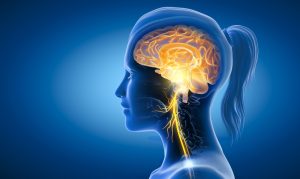Alzheimer’s disease (AD) is a degenerative disorder of the brain, characterised commonly by progressive memory loss, cognitive deficit (reduced mental capacity to reason, make judgements) and behavioural changes which impair a person’s ability to function independently. The condition “Alzheimer’s disease” was coined by Dr. Alois Alzheimer, the scientist who first described the condition in 1906.
In 2015, the number of cases of AD was about 23 million in the Asia Pacific region; it has been estimated that this prevalence will burgeon to 71 million by 2050. With access to advanced medical care and consequent increasing life expectancy, AD is on the rise as old age causes susceptibility to it.
As we celebrate World Alzheimer’s Day on 21 September, read on to find out more about this disease, including its causes, symptoms and how we may be able to prevent this disease from developing!
Causes and risk factors
In AD, damage to the brain begins years before symptoms manifest. Naturally occurring proteins (tau, beta -amyloid) accumulate abnormally in and around brain cells to form tangles and plaques, interfering with the transmission of signals between nerve cells in the brain. Brain cells die as these cellular connections are lost. Chronic inflammation as well as reduced ability of the brain to metabolise glucose (main fuel) also contribute to cell death and brain shrinkage in advanced disease.
Although it is unknown what triggers the above processes responsible for AD, some well-known risk factors for developing AD are:
| Non-modifiable | Modifiable |
| Family History | Lack of exercise |
| Age | Smoking |
| Female Sex | Heavy alcohol use |
| Down’s Syndrome | Cardiovascular disease e.g. high blood pressure, high cholesterol, diabetes, obesity |
Symptoms
Degenerative changes in brain associated with AD lead to the following symptoms:
Memory loss
- Forgetting conversations, appointments or events
- Repeating questions and statements
- Misplacing possessions frequently, putting them in illogical locations
- Getting lost in familiar places
- Eventually forgetting names of family members and everyday objects
- Having trouble finding the right words to identify objects, express thoughts or take part in conversations
- Difficulty performing routine activities that require sequential steps, such as bathing and getting dressed, planning and cooking a meal or playing a favourite game
Changes in personality and behaviour
- Social withdrawal
- Having mood swings – depression, feeling increasingly anxious, agitated
- Having delusions (believing things that are untrue) or feeling paranoid and suspicious about carers or family members
- Having hallucinations
- Changes in sleeping habits
- Loss of inhibitions
- Obsessive, repetitive or impulsive behaviour
Inability to make reasonable decisions or judgement
- Inability to pay bills or manage finances
- Wearing inappropriate clothes for the weather
- Crossing a busy street without regard for traffic
- Wandering at inappropriate hours
As the disease progresses, symptoms worsen to affect the sufferer’s day-to-day functioning. Impaired physical functions can also lead to complications like malnutrition/aspiration pneumonia due to impaired swallowing, falls/fractures due to loss of balance. In the end stage, a person requires assistance in all aspects of daily living e.g. walking, dressing, eating, and toileting, and may become bedridden and non-communicative ultimately.
Diagnosis
AD is only diagnosed definitely after death, when microscopic examination of the brain reveals the hallmark plaques and tangles.
Physicians however, use various approaches to make a reasonably accurate diagnosis of AD – by taking a detailed history (perspective from family too), physical examination, and neurological examination (including tests to assess memory and thinking skills). They will also rule out other causes of AD symptoms with some laboratory and imaging tests e.g.:
- MRI, CT scan to look out for brain shrinkage, tumours, strokes and trauma
- Complete blood count to rule out anaemia, infection
- Erythrocyte sedimentation rate (ESR) to detect inflammation (body reaction to an infection or foreign agents)
- Blood glucose/electrolytes changes
- Vitamin B12 level in the blood to assess if vitamin B12 deficiency is contributing to your symptoms
- Thyroid function test to determine the level of thyroid hormone in your blood
- Syphilis/HIV serology
- Drug screen to check for illicit drug use
Management
Although current treatment modalities cannot cure the disease, they can slow its progression and help to improve the quality of life of patients.
Behavioural strategies
- A person with Alzheimer’s disease should be provided a familiar environment.
- Use of memory aids such as daily reminders and notebooks.
- The kitchen, bathroom, and stairways should be made safe.
- Stop driving.
- Support groups and adult daycare centres can be helpful for some patients.
Drugs
- Anti-cholinesterase drugs (e.g. rivastigmine, galantamine, and donepezil) work to boost cell-to-cell communication in brain by preserving a chemical messenger that is usually depleted in the brain in Alzheimer’s disease
- Memantine: It is said to increase memory and enhance learning.
- Antidepressants/anxiolytics/antipsychotics may sometimes be prescribed to manage behavioural and psychiatric symptoms
- Novel drugs are under development that will block the deposition of protein in the brain.
- Many clinical trials are currently underway to discover an effective treatment.
As caregivers often feel burnout, sometimes nursing home placement of patients may be necessary.
Prognosis
Different studies have shown that a person with AD lives an average of five to eight years after diagnosis, but can live up to 20 years since different factors affect survival.
Prevention
There are no scientifically proven measures to prevent the onset of Alzheimer’s disease but adopting a healthy lifestyle can reduce your risk of developing AD. These include:
Reducing cardiovascular risk
- Quitting smoking
- Cutting alcohol intake
- Eating a healthy balanced diet low in saturated fat, more fruits and vegetables
- Exercising regularly, clocking 150minutes per week, where possible
Maintain mental and social engagement
- Reading
- Playing board games
- Learning a new instrument
- Taking part in group activities/sports
- Having an active social life interacting with friends and community
Article is written in conjunction with World Alzheimer’s Day 2021, held on 21 September.











